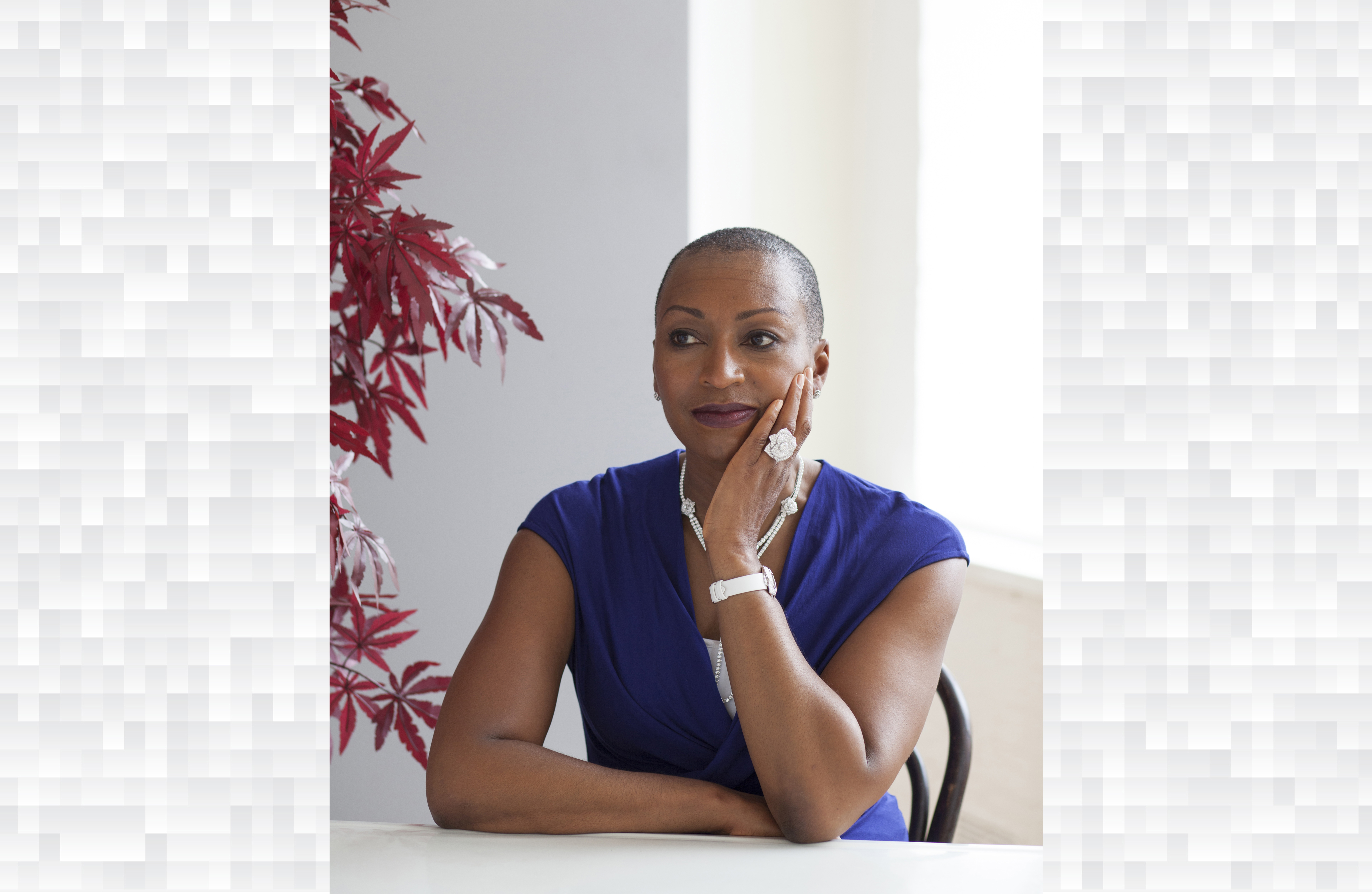Sandie Okoro, Senior Vice President and General Counsel at the World Bank Group
SANDIE OKORO IS SENIOR VICE PRESIDENT AND GENERAL COUNSEL at the Washington, D.C.-based World Bank Group. Okoro studied law and politics at the…
January 11, 2018 at 04:28 PM
5 minute read
 Sandie Okoro, Senior Vice President and Group General Counsel of The World Bank Group.
Sandie Okoro, Senior Vice President and Group General Counsel of The World Bank Group.
SANDIE OKORO IS SENIOR VICE PRESIDENT AND GENERAL COUNSEL at the Washington, D.C.-based World Bank Group.
Okoro studied law and politics at the University of Birmingham, from which she received an LL.B., then studied at the Inns of Court School of Law, now part of City University of London, and joined Lincoln's Inn, qualifying as a barrister. She then re-qualified and trained as a solicitor. Prior to joining the World Bank Group, she was GC of HSBC Global Asset Management and deputy GC of HSBC Retail Banking and Wealth Management since 2014, prior to which she was global GC at Barings, an investment services company. In July 2014, she was awarded an honorary doctorate in law by City University London. This past July, she was made an Honorary Bencher of Middle Temple in the United Kingdom. "I have a passion for development," Okoro says. "I always wanted to do something that makes the world a better place. I kind of did some of that in my spare time, but the fact that I can now do something that I love as my day job and get paid for it is extraordinary." The World Bank is a specialized agency of the United Nations, a multilateral development bank and an international financial institution. It provides low-interest loans, zero to low-interest credits, and grants to developing countries. It focuses on eradicating extreme poverty and boosting shared prosperity. "The Legal Vice Presidency Unit serves as the [World] Bank's corporate counsel, providing independent legal advice on all legal issues ranging from issues arising out of our policies, operations and financial transactions, to the creation of new concessional financing facilities—for refugees, climate finance or pandemics—the fight against fraud and corruption, or personnel issues. As GC, I am spokesperson for the [World] Bank on all legal matters," she says. "I also provide legal advice to our governing board and its members, which represent our shareholders."
LEGAL TEAM: The legal unit is made up of 180 staff members, including close to 130 lawyers, and 50 support staff, including paralegals. Some 75 percent of the staff is assigned to an operational portfolio, so most of their work involves negotiating loans, guarantees and grants directly with governments. The legal team is mostly based in Washington, D.C., except for 20 lawyers who work out of 14 country offices worldwide. "I have a large team of highly competent staff with decades of experience," Okoro says. "I am more of a macro-manager, so [I] delegate the bulk of the work to my team. My main interaction is with the board and senior management." She is based in Washington, D.C., but travels for her job. "Eight months into my mandate, I have been traveling quite a lot, but not as much as I would like to," Okoro says. "My priority has been to visit all my decentralized lawyers. I am just returning from a long three-week mission to South East Asia. Next on my list are Latin America and Africa."
LAST BOOK READ: "The World Bank Legal Papers" by Ibrahim Shihata, a former World Bank GC, and "Game of Thrones" by George R.R. Martin. "Both are riveting reads," she says.
WHAT KEEPS HER UP AT NIGHT: "Nothing," she says. "I always sleep very well. But as general counsel, a risk that is mine to guard and protect is the risk of legal liability for the [World] Bank; the risk that our immunities fail to protect us."
PRIORITIES AS GENERAL COUNSEL: "We need to re-evaluate the legal team's contribution to the [World] Bank's agenda and take more of a risk-based approach to lawyering. We need to be there at the table from the beginning, identifying and advising on legal risks at the same time as … protecting the organization, while retaining the flexibility and pragmatism we need to remember the importance of … delivering on our goals," she says. "This is all about 'smart lawyering' so that we can help the [World] Bank achieve its twin goals of ending extreme poverty and boosting shared prosperity. We must always have the goals of the [World] Bank at the forefront of everything we do as lawyers."
ROLE OF WOMEN IN LEGAL PROFESSION: "It has changed quite a bit from when I started my career," she says. "There are more women in leadership roles, but by no means is it 50/50. It should be 50/50 and until we achieve that, we cannot see anything we have done to date as a success. We should not ask for a seat at the table, we should take it. As half the population, we have a right to be represented. It's not the role of women that needs to change but the role of men," Okoro adds. "It's not the women that need fixing."
NOT FOR REPRINT
© 2025 ALM Global, LLC, All Rights Reserved. Request academic re-use from www.copyright.com. All other uses, submit a request to [email protected]. For more information visit Asset & Logo Licensing.
You Might Like
View All

Internal GC Hires Rebounded in '24, but Companies Still Drawn to Outside Candidates
4 minute read
Advance Auto Parts Hires GC Who Climbed From Bottom to Top of Lowe's Legal Department
2 minute read
State AG Hammers Homebuilder That Put $2,000-Per-Day Non-Disparagement Penalty in Buyer Contracts
3 minute readTrending Stories
- 1CFPB Labor Union Files Twin Lawsuits Seeking to Prevent Agency's Closure
- 2Crypto Crime Down, Hacks Up: Lawyers Warned of 2025 Security Shake-Up
- 3Atlanta Calling: National Law Firms Flock to a ‘Hotbed for Talented Lawyers’
- 4Privacy Suit Targets Education Department Over Disclosure of Student Financial Data to DOGE
- 5Colwell Law Group Founder Has Died in Skiing Accident
Who Got The Work
J. Brugh Lower of Gibbons has entered an appearance for industrial equipment supplier Devco Corporation in a pending trademark infringement lawsuit. The suit, accusing the defendant of selling knock-off Graco products, was filed Dec. 18 in New Jersey District Court by Rivkin Radler on behalf of Graco Inc. and Graco Minnesota. The case, assigned to U.S. District Judge Zahid N. Quraishi, is 3:24-cv-11294, Graco Inc. et al v. Devco Corporation.
Who Got The Work
Rebecca Maller-Stein and Kent A. Yalowitz of Arnold & Porter Kaye Scholer have entered their appearances for Hanaco Venture Capital and its executives, Lior Prosor and David Frankel, in a pending securities lawsuit. The action, filed on Dec. 24 in New York Southern District Court by Zell, Aron & Co. on behalf of Goldeneye Advisors, accuses the defendants of negligently and fraudulently managing the plaintiff's $1 million investment. The case, assigned to U.S. District Judge Vernon S. Broderick, is 1:24-cv-09918, Goldeneye Advisors, LLC v. Hanaco Venture Capital, Ltd. et al.
Who Got The Work
Attorneys from A&O Shearman has stepped in as defense counsel for Toronto-Dominion Bank and other defendants in a pending securities class action. The suit, filed Dec. 11 in New York Southern District Court by Bleichmar Fonti & Auld, accuses the defendants of concealing the bank's 'pervasive' deficiencies in regards to its compliance with the Bank Secrecy Act and the quality of its anti-money laundering controls. The case, assigned to U.S. District Judge Arun Subramanian, is 1:24-cv-09445, Gonzalez v. The Toronto-Dominion Bank et al.
Who Got The Work
Crown Castle International, a Pennsylvania company providing shared communications infrastructure, has turned to Luke D. Wolf of Gordon Rees Scully Mansukhani to fend off a pending breach-of-contract lawsuit. The court action, filed Nov. 25 in Michigan Eastern District Court by Hooper Hathaway PC on behalf of The Town Residences LLC, accuses Crown Castle of failing to transfer approximately $30,000 in utility payments from T-Mobile in breach of a roof-top lease and assignment agreement. The case, assigned to U.S. District Judge Susan K. Declercq, is 2:24-cv-13131, The Town Residences LLC v. T-Mobile US, Inc. et al.
Who Got The Work
Wilfred P. Coronato and Daniel M. Schwartz of McCarter & English have stepped in as defense counsel to Electrolux Home Products Inc. in a pending product liability lawsuit. The court action, filed Nov. 26 in New York Eastern District Court by Poulos Lopiccolo PC and Nagel Rice LLP on behalf of David Stern, alleges that the defendant's refrigerators’ drawers and shelving repeatedly break and fall apart within months after purchase. The case, assigned to U.S. District Judge Joan M. Azrack, is 2:24-cv-08204, Stern v. Electrolux Home Products, Inc.
Featured Firms
Law Offices of Gary Martin Hays & Associates, P.C.
(470) 294-1674
Law Offices of Mark E. Salomone
(857) 444-6468
Smith & Hassler
(713) 739-1250






